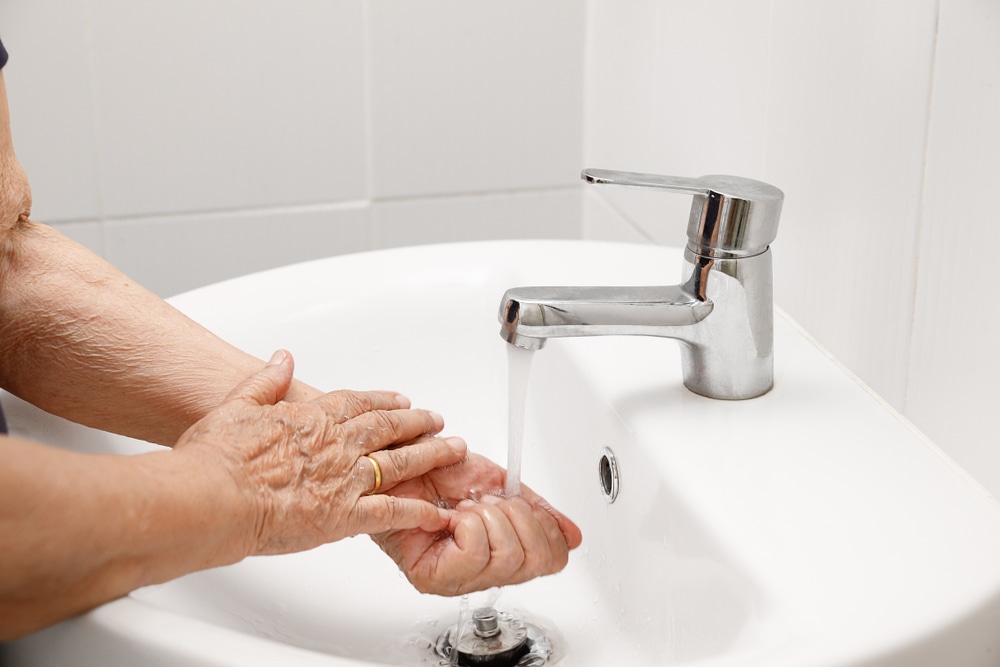A person with dementia may lose interest in their appearance and may not wash or shower as much as they used to. You may have to prompt them to wash or dress appropriately. This can be difficult, as they may not think they need a wash, or they may want to sit around in the same clothes for days and days. My mum was reluctant to change out of her favourite black polo neck jumper and black trousers. She would have happily worn them all the time if I hadn’t managed to persuade her to change. If you are struggling to persuade the person to get washed and dressed, think about how essential it is at that moment. If they are staying in most of the day then sitting around in their nightwear won’t be a big deal and a quick wash may be less stressful for them.
If you are helping the person with personal hygiene, try to make them feel at ease. If they need to remove their clothes and wash, they may feel violated, even by you. How much help do they really need? If they are in the early or mid stages of dementia, they may be able to manage and may just need a few prompts. Choose clothes that are easy to pull on or take off. Avoid fiddly zips or tops that need to be pulled overhead. Cardigans will be easier to put on than roll neck jumpers. Tracksuit bottoms or trousers with an elasticated waistband will be easier to put on and remove than jeans or buttoned trousers.
When helping with personal care, try the following:
- Give them space – Allow extra time to help the person get washed and dressed if you are taking them out.
- Use distraction techniques – If you are helping them with washing or toileting, do what you can to help while distracting them with a conversation about a topic they like. A care worker once told me a colleague of hers would tell a resident that they were going for a spa treatment. She would then give her a foot massage with oils afterwards.
- Put yourself in their shoes – As a carer, it’s easy to focus on the task that needs to be done and not think about the impact it’s having on the person with dementia. Imagine how strange it would feel to have someone washing or dressing you.
- Encourage them to be independent – Whatever they can still do for themselves, let them do it, without trying to take over and pointing out that they are doing it wrong.
